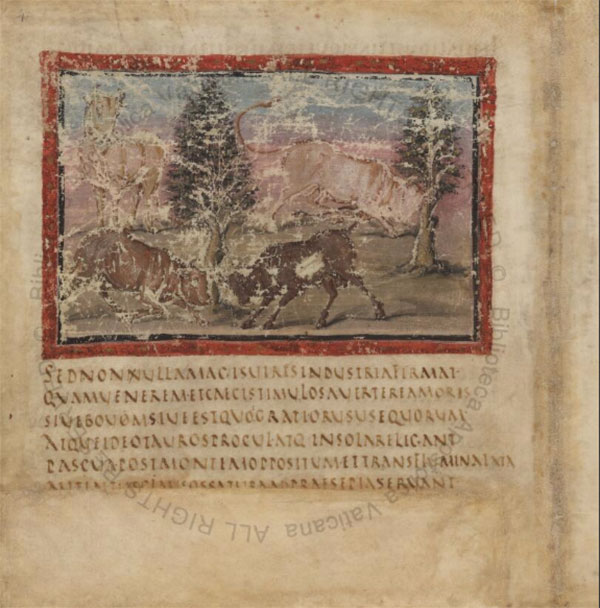Vatican Digitises 1,600-year-old Vergil’s Aeneid Manuscript
An ancient manuscript made available online.
Around 400 AD, a scribe and three artists made a decorated manuscript of Vergil’s Aeneid. Now, almost 1,600 years later, Vatican has made a digital copy of the surviving fragments of the original work. The ancient manuscript known as the Vergilius Vaticanus that contains one of the world’s most ancient examples of Latin poetry is now available online for free.
The digitalization of the manuscript was realized within the part of a long-term project launched by Digita Vaticana, a non-profit organization affiliated with the Vatican Library. The project’s aim is to digitize all the manuscripts held by the library. The Vatican Library, which was founded in 1451, stores about 80,000 manuscripts and ancients texts, including drawings and notes by such great historical figures as Michelangelo or Galileo. The organization sets an ambitious aim of converting these 40 million pages into 45 quadrillion bytes.
Apart from the Aeneid, the Vergilius Vaticanus includes extracts from Vergil’s second poem, The Georgics, which describes agriculture and the tensions between man and nature. The manuscript consists of 76 surviving pages with 50 illustrations, some of which are badly damaged. The Vergilius Vaticanus is the only surviving fragment of the complete manuscript, with the initial part of it lost. Most probably the manuscript contained a complete set of Virgil’s canonical works, as per custom those days, written on about 440 pages with 280 illustrations.
Vergilius Vaticanus, which is considered a great example of Roman calligraphy, was written down by one scribe in capitals in a rather bold manner. Together with him three artists worked on the manuscript. The Vergilius Vaticanus is one of the only three illuminated manuscripts of classic literature. Meticulously coloured scenes from the poem are highlighted with brush-applied granulated gold.
To digitize the Vergilius Vaticanus and 3,000 other manuscripts Digita Vaticana works in cooperation with the Japanese IT company NTT DATA. They use a special scanner that prevents damaging the ancient pages: its technology allows scanning without fully opening the book binding.According to Digita Vaticana, scanning of all the 80,000 pages of ancient manuscripts will take about 15 years and cost around 50 million euros. Funds will be collected through donations. The organization is ready to offer printed reproductions of the Vergilius Vaticanus to the first 200 supporters who will donate at least 500 euros.
 Vatican Digitises 1,600-year-old Vergil’s Aeneid Manuscript
Vatican Digitises 1,600-year-old Vergil’s Aeneid ManuscriptSource: moc.media
Calligraphy is the art of both ideal writing and an ideal soul.



